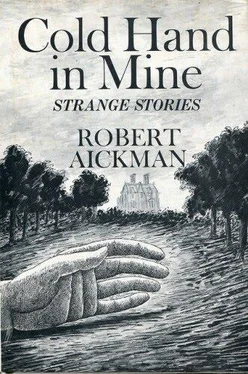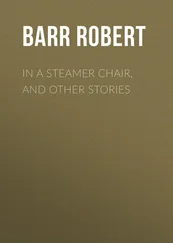And, duly, the next day the builders moved in. They actually woke me up with their singing, whistling, jostling, rowing, and other customary noises. They were in for an endless three weeks (though nowadays it would be six or nine); and, as serious work became impossible, I moved back to my mother's cottage for a spell, my first of more than a night or two since I had gone to London. The day of my departure was the first time also, as I well remember, that I kissed Maureen full and passionately on the lips. I had feared, if I may be honest, to commit myself so far: with Maureen's husband and children in permanent residence just below me, to say nothing of my own narrow circumstances. Now the break in my regime seemed to make it less of a commitment. It was not a very sympathetic way of seeing things perhaps, but the options are so greatly fewer than people like to think.
When I reached the cottage, I found it impossible to work in the little bedroom that was always reserved for me, as the gravel lane outside was being "metalled" and widened. Even in the small sitting-room facing the other way, the noise was disturbing, and I had to throw the Daily Chronicle over work sent me by Valentine, every time I heard my mother's step, which was frequently, as she was solicitous and would have liked to keep me with her. In the end, the rumbling, indecisive steamroller, the clanking tar-boiler, the roadmenders more loudly jocund than Michael Fairless, withdrew to agitate other households, to diminish the more distant hedgerow. "Do stop as long as you can," said my mother.
Maureen had told me, before I left, that our ground, first, and second floors had all been made the subject of a single new letting. She had a way of picking up such things. She did not know whether the Freedom people had been actually driven out. It was impossible to believe that the enterprise could have much future in any case; and, indeed, I never heard of it again after that late sad night of removal and retreat, nor saw a copy of the paper on any bookstall or barrow.
In the end, I went to London for the morning in order to prospect. The whole front of the house had had its woodwork repainted, partly in blue, partly in white; including my two small square attic windows that looked on to the street. The early nineteenth-century front door had been brightly blued, and, to the left of it, at shoulder-height on the whited jamb, was an unusually large brass plate: Stallabrass, Hoskins and Cramp. Chartered Accountants . The plate needed polishing, possibly because it had only just arrived from elsewhere.
It was the time of day when Maureen was working with her bookmaker. I let myself in and mounted towards my abode. The internal paintwork had been renewed from top to bottom, though rather roughly, as was to be expected so soon after the war, and in crude colours. The staircase walls had been repapered in an assertive mid-green. There was even a mottled carpet, where before there had been dark lino and unravelling drugget. It occurred to me that the heterogeneous impression might be a consequence of drawing upon stock-ends sold off (in this moment of world historical renewal) at bargain prices. There was no one about, and all the doors were closed, and everything was silent. At least, and at last, the builders were out.
My own front door contained a letter-box, though no postman had in my time ever ascended to it, all our letters being left on a shaky shelf in the ground floor passage. Now I found a billet-doux marked "By Hand": the agents were upset because I had not been there to admit the decorators. Would I please call in at their office as soon as possible? I never did anything more about that and nor did the agents. The building belonged to a vague charitable foundation which supported a school for needy boys. The school had been moved out of London before my time and the offices of the foundation with it. I had not found the agents to be over-officious. It had been one of the attractions.
My rooms were filled with every kind of grit and dirt owing to the decorating activities outside. They looked almost uninhabitable. I had never thought of affording any kind of professional cleaner; nor, indeed, had I ever noticed such a person in the whole place, though I realized that someone must have brushed the stairs from time to time. Now I wondered whether I should not have to solicit Maureen, or at least Maureen's advice.
It would have to be postponed. I had seen enough to know that in other, more important respects, I could return. Upon a writer unsuccessful and successful also in the degree that I then was, work always waits and presses. I went back to my mother's cottage for another night or two. "You must have found your flat very dusty," said my mother. "You had better let me give it a good spring-clean."
She had not been there before and I was hesitant. But, fortunately, when the time came, she seemed quite to like the attic, despite the disconcerting approach, with all the new colours staring out, and all the doors still locked. I know that at least most of them were locked and not merely shut, because my mother tried many of the handles, and in no uncertain way, which I on my own had not cared to do.
"How do you get on with the people in the basement?" asked my mother.
I told her in some suitable words.
"I'm glad the wife's taken to you. You need a woman around. I'm glad she's pretty too."
It was not until several days after I finally returned that I again saw Maureen. My habits were pretty mousey, and I do not think she had realized that I was there. For my part, I held back from taking the initiative. In the first place, I had never done so hitherto. In the second place, I was more uncertain than ever, after the spell of absence, how things were going to develop, or even how I wanted them to develop. Then, one morning within the first week, as in a column of burning fiery chariots, entered into possession Messrs Stallabrass, Hoskins and Cramp, with all their force, all their mechanism, all their archive. Their arrival was as confident, rowdy, and cheerful as the withdrawal of Freedom had been obscure and muted. On the instant the staircase was alive with short-haired, short-skirted girls running up and down as in Jacob's dream, except that these girls were exchanging backchat with shouting removal men. (Short hair and short skirts were, of course, new at that date, though my mother had already gone in for both, even though she rarely travelled far from her cottage.) Moving through the throng were several men in white shirts, stiff collars, dark trousers, and braces. Could they be partners? Even Stallabrass, Hoskins and Cramp in person? Certainly they were going through motions which might well be a form of giving orders. The total number of persons involved quite eclipsed Freedom , even relatively. And that afternoon came Maureen tapping at my door.
"Why didn't you let me know you were back?"
"I hesitated."
She was willing to let it go at that.
"What do you think?" I went on, inclining my head downwards and sideways.
Maureen twitched up a corner of her mouth.
"Do you suppose they'll quieten down?" I asked.
"I don't see why they should. They're a pretty awful lot from what little I've seen."
"I've seen quite enough of them already." Authors always tend to be hasty in their judgments. It is the strain of searching for peace and concentration.
"Have you seen Mr Millar?"
"Not that I know of. Who's Mr Millar?"
"He's the man whose outfit it really is. The names outside don't exist, or are all dead, or something. My guess is that Mr Millar's bumped them all off."
I remember Maureen using that exact expression, which was then as new as short hair and short skirts.
"Not necessarily," I said. "You often find these firms with lots of names and none of the people really existing."
Читать дальше












